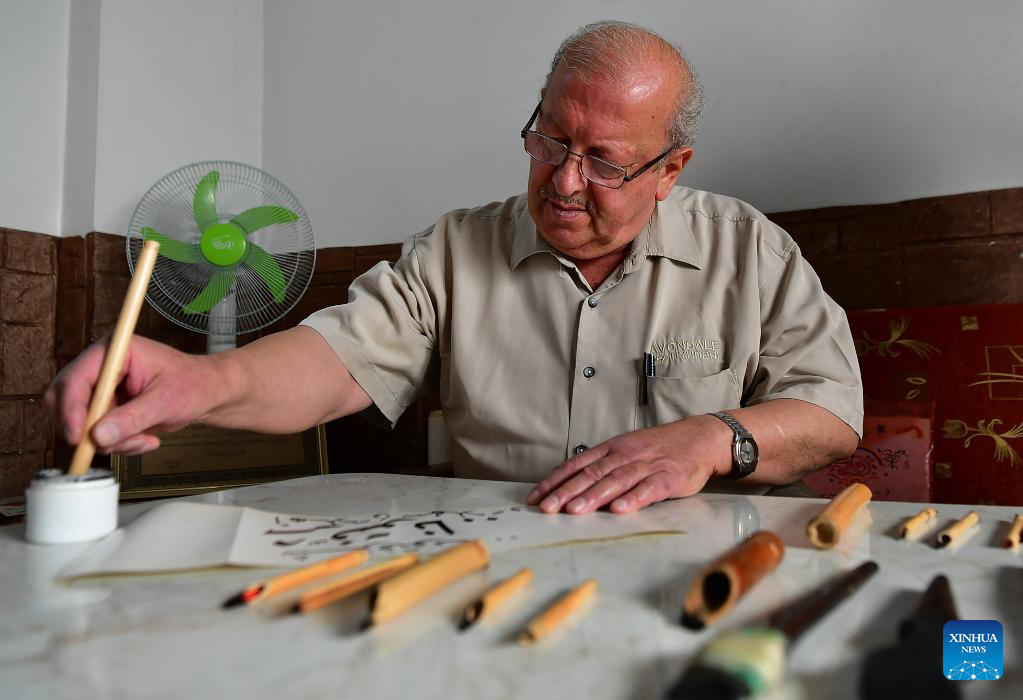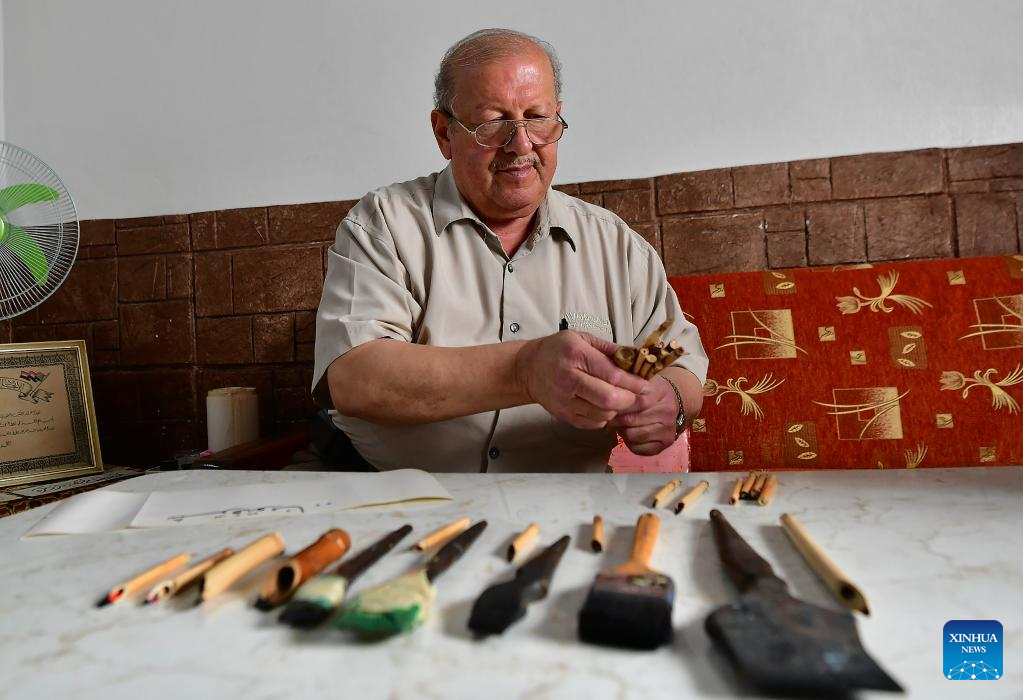
Calligrapher Haitham Kattan writes at his home in Damascus, Syria, Sept. 22, 2022. (Photo by Ammar Safarjalani/Xinhua)
by Hummam Sheikh Ali
DAMASCUS, Sept. 23 (Xinhua) -- Computer technology has made life mostly easier, but not for Syrian calligraphers, as the popularity of digital printing has endangered their profession of handwriting signage for local businesses.
Haitham Kattan, a 73-year-old calligrapher from Damascus, is one of the craftsmen whose long-lived artwork has been taken over by digital graphics.
He is one of the very few people still practicing calligraphy, which used to be a bread-earning profession.
Over the past 55 years, Kattan's signature has been seen tailing most shop banners, before digital printing, which is easy to use and inexpensive, started to prevail, making handmade calligraphy far less profitable.
Things turned for the worse in 2015, when he had to leave his workshop in central Damascus due to the mortar attacks.
But for Kattan, surrendering is not an option. He is ready to go the extra mile to keep this art alive, Kattan told Xinhua.
He soon sold the workshop but meanwhile designated a room for continuing practicing the art at his home in Damascus, the man recalled
"Out of my love for it, I can't leave it. When I walk down the street, my eyes keep tracking the banners and the fonts in which they are written," he added.
Now, Kattan sits in his room using the old school method of bamboo reed pens and ink to write names and compliment letters in various fonts and types.
At abundant leisure, the man now offers private lessons for young men and those interested in this old writing art.
He lamented that nowadays, people do all the designs on computers, which is soulless, as he described.
"This generation can sit on computers and make paintings and artwork and embed letters in them but that is not enough as the calligrapher has his soul in what he writes," he said. ■

Calligrapher Haitham Kattan arranges bamboo reed pens for handwriting at his home in Damascus, Syria, Sept. 22, 2022. (Photo by Ammar Safarjalani/Xinhua)



